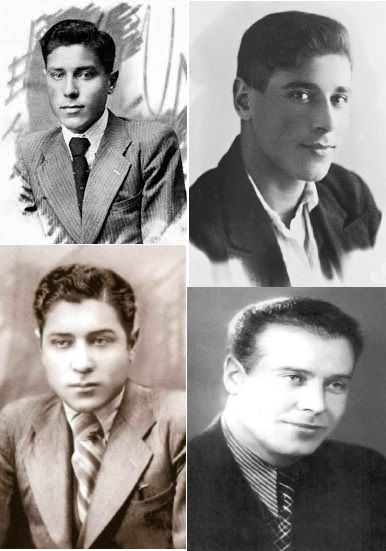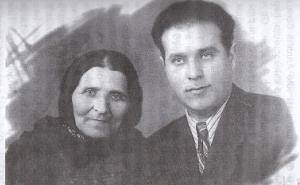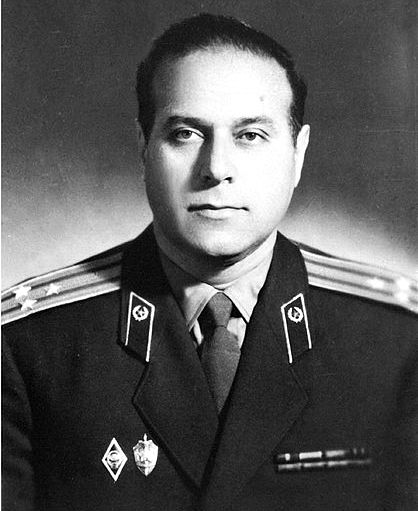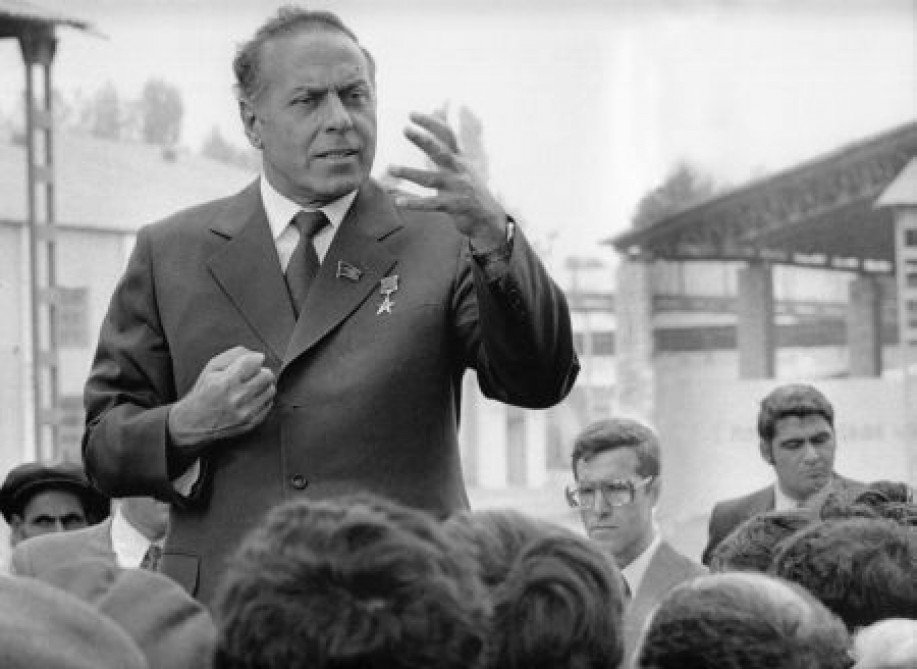|
|
TODAY.AZ / Politics
Heydar Aliyev 100: A look at National Leader's childhood and youth years in Nakhchivan
06 April 2023 [08:30] - TODAY.AZ

By Azernews
By Elnur Enveroglu
Heydar Aliyev, the greatest leader of Azerbaijani people who has been a pride of his people with his special ability in various fields of culture, art and science and profound knowledge of politics, diplomacy and so on has also been a prominent person all over the world. Learning in particular the childhood period of the national leader's rich life could be more interesting from this viewpoint.

The document shows Heydar Aliyev was born in 1923 in the city of Nakhchivan, and in 1999 the museum of Heydar Aliyev was set up. Many documents belong to the National Leader was gathered to the museum, and the great leader Heydar Aliyev himself described the childhood years as follows:
“When I was young, I didn't realise about becoming a great leader some day. I didn't think that I would enter politics and become a statesman. I didn't even think about the future. Basically, I was just studying as hard as I could in school and trying to gain some basic knowledge and get excellent grades. I would say, though, that when it came to my studies, I was quite disciplined.”
Moreover, the documents says that Heydar Aliyev was talented child among his fellows in the old Nakhchivan in the 30-40s. According to Latif Huseynzadeh, who was the Azerbaijani and literature teacher of the National Leader at the Nakhchivan Pedagogical school said that Heydar Aliyev had been an excellen pupil and enjoyed himself as a teacher.

In his inlerview to the American journalist Heydar Aliyev rememebered his childhood ages as below: “As for my father and mother - they made a profound impact on my life. We were eight in the family. My father worked for the railroad as a locomotive driver. But they had many fine human qualities. It's true that our living conditions were very difficult, but I can't remember that we were unhappy. We thought that the situation and conditions we were in were just gift of God and we accepted them as such. Neither my mother nor father were educated, but we kids - all eight of us - received very good education. Several of us became scientists and professors. One of my brothers became an artist. I eventually entered government service. But my greatest interest was in theater. Despite the fact that Nakhchivan [pronounced nakh-chi-VAHN], where I grew up, was a small, provincial Muslim town, there was a very high level of culture there. Our theater tradition dates back more than 100 years. Can you imagine that there was a theater tradition there so long ago? That's quite an accomplishment given that Tabriz, for example, a large Iranian city populated primarily by Azerbaijanis and about three hours south of Nakhchivan, still to this day doesn't have a theater. Yet Nakhchivan does. In other words, although there were only a few people that you could call intellectuals, they had created a theater. When I was 12 and 13, I used to go there a lot. Sometimes I didn't have money, but since I was a kid they would let me in without a ticket. It was a great event for me. Such occasions are among my dearest memories of childhood.
The theater had a profound impact on me. It wasn't long before I started getting involved with theater myself at the Pioneers' House. The leader of our club was one of the leading actors at the Nakhchivan theater.
After a while, I was assigned some of the key roles. For example, Mirza Fatali Akhundzade, the founder of theater in Azerbaijan, wrote the country's first dramatic work. He has a play called "The Adventures of the Lankaran Khan's Vizier". I read somewhere in the newspapers recently that this work was being staged again, but I ended up playing the key role when we staged it. Of course, we couldn't perform the entire piece - only two or three acts. I was 14 or 15 years old at the time. Later we staged Hamlet in two parts. I played Hamlet.
In Azerbaijani, of course...
Yes, it had been translated into Azeri. I don't speak English. No one knew English in Nakhchivan at that time. I also pursued drawing and could draw quite well. My sketches used to take first place in competitions at our high school. Perhaps there was some sort of talent in our family, because my older brother became an artist. While I was studying in high school, he was off in Leningrad (St. Petersburg) at the Art Institute. When he would come home on vacations, he would draw scenes from nature. I would hang around with him and so I started to draw as well. I discovered that I could do it quite well. So by the time I graduated from high school, I thought that I wanted to become an artist. But at that time, Azerbaijan didn't have an Art Institute, so there was no way for me to get further training and experience. At the age of 16, I left Nakhchivan for Baku”.
According to Heydar Aliyev, he left Nakhchivan for Baku early age. He had to take a train for three days because there wasn't a train running directly between Nakhchivan and Baku. He had to go to Yerevan and then Tbilisi and then change trains for Baku. He has slept in railroad stations on many occasions. He used to have a small suitcase that he would put under his head so he could sleep on the floor in those stations. Then He came to Baku and studied architecture at the university.
At that time Nakhchivan didn't have a university and Aliyev wanted to get more education. His brother was living in Baku at the time. His brother became a scientist and used to work at the Academy of Sciences. Young Heydar was interested in architecture and loved it very much. Heydar Aliyev had planned to study to be an architect.
It should mention one other thing. In Nakhchivan Heydar Aliyev had studied in Azerbaijani, but in Baku at the university, architecture was taught only in Russian since the professors had all come from Russia. Heyday Aliyev's Russian was not that good. It was a serious problem for him, and he was worried that he wouldn't get accepted. But his older brother insisted that he would gradually improve his Russian. At that time, there were very few Azerbaijanis outside of Baku that spoke Russian.
Well, Aliyev did succeed in learning Russian and in getting admitted to the Faculty of Architecture at the university. Heydar was on his own, living alone in a dormitory. He had a lot of financial needs, since his father's family was so large that he couldn't afford to send him money. Despite the fact that he had a scholarship, it was not enough to cover living expenses.
An older friend in the dormitory, a Russian, one day asked him whether he wanted to make some money. Of course, he did. So they went down to the port of Baku and unloaded logs from the ships. Heydar used to go to the port from 7 or 8 p.m. until 1 a.m. They would carry the logs on their shoulders. It took two or three people to carry one of those huge logs. They would get paid every ten days. So for four or five months Heydar Aliyev made some money that way.
But Aliyev soon realized that he was getting bruises on his shoulders from carrying those logs, so he quits. His brother helped him get another job at the Geography Institute of the Academy of Sciences. Heydar Aliyev went there in the evenings and worked until midnight copying maps. It was easier work and enabled him to make some money. So that's how he was living.
Once again, Heydar Aliyev got involved with drama at the university. After the first year, Aliyev was again assigned some of the leading roles. Theater has had such a great impact on Heydar Aliyev. Playing those roles helped young Aliyev to understand the deeper meanings of those works, he said: To this day I still love theater very much, he added.

Then 1941 came, the war broke out and that was the end of Aliyev’s college education. It was Heydar’s third year of school but he was drafted into the army and sent to the Ministry of National Security. Within a year or so, he became a lieutenant, but his heart missed architecture, he said. After the war he wanted to leave the army and continue in architecture, but they wouldn't let him go back. He only studied for about three years. Then he worked in the security system. Again with success. He ended up staying there for 26 years working in security.
Heydar Aliyev was very successful and eventually was appointed as General. He was very much appreciated in that system as well, because political knowledge was very important. Then in 1969 he was elected as a leader in Azerbaijan.
But getting back to our original question, in other words, when Heydar was young he had no intention of getting involved with the military or working in security, political parties or the government. He simply wanted to become an artist or an architect, he said. But life took him down a different path. It turned out that he also had talent in these other areas, but he didn't know that when he started, he said.

Accoring to Aliyev, It's true that there were chauvinists in Moscow as well as in the Politburo. They were jealous because they felt that only Russians should hold these top positions.
“I remember that in one of the American magazines which was called The Time Magazine - there was an article about me sometime in 1983 or 1984. It said that Heydar Aliyev was the most qualified and deserving person to head up the Soviet Union after the death of Andropov. But, the article noted that since I was a Muslim, I would never be allowed to lead the Soviet Union.
Again, after the death of Andropov and later Chernenko, there were several articles in the Western press saying that I was a very valuable and deserving candidate to lead the Soviet Union. Those articles sparked even more jealousy towards me which intensified so much that I had to resign from the Politburo in 1987.
There was one more magazine article that I should mention. It was in an American magazine. It said, (I'll repeat the quote in Russian) "Among the sleepy members of the Politburo, Heydar Aliyev looks like a Hollywood star." So that's how I entered politics.
It's hard to identify something specific that happened in childhood that made me become a politician. Most likely it was because I worked very hard. Look, you're meeting with me today - on a Sunday. No one works in America on Sundays, nor in Moscow. But here I am in my office and I'm making all these poor people around me work”, he said
Heydar Aliyev was indeed, the greatest leader of his time and today, and we are proud of him. Azerbaijani people follow his political way. Once the journalist asked him about it, he replied that they must pursue the policy that I have put in place. If they do, then they will succeed. If not, then Azerbaijan will face so much tragedy.
You have to take into consideration the interests of every country. You can't be friends with some countries and enemies with others despite the fact that this is the way most countries function. Azerbaijan doesn't want to be an enemy with any country. At the same time, we will not become victim to another country's policies. Azerbaijan has its own independent policy. At the same time, we are developing good relations with Europe and America and seek to benefit from their experiences while preserving our own national identity and our own resources.
URL: http://www.today.az/news/politics/233512.html
 Print version
Print version
Connect with us. Get latest news and updates.
See Also
- 18 February 2026 [13:13]
The shameful finale of the banned "resident" - 18 February 2026 [11:51]
President Ilham Aliyev sends congratulatory letter to President of Gambia - 17 February 2026 [14:14]
Zangezur corridor as horror story for Moscow - 17 February 2026 [12:21]
Market instead of friendship and resentment instead of politics - 17 February 2026 [12:12]
Decarbonization and pragmatism: how does Baku act? - 17 February 2026 [11:10]
President Ilham Aliyev sends congratulatory letter to Xi Jinping - 16 February 2026 [11:13]
President Ilham Aliyev congratulates President of Lithuania - 16 February 2026 [11:11]
Emin Huseynov: portrait is a reminder - 16 February 2026 [10:10]
All dots above the "I" and how Baku knows how to place them - 15 February 2026 [18:08]
President Ilham Aliyev, President of Serbia make press statements
Most Popular
 All dots above the "I" and how Baku knows how to place them
All dots above the "I" and how Baku knows how to place them
 The shameful finale of the banned "resident"
The shameful finale of the banned "resident"
 Decarbonization and pragmatism: how does Baku act?
Decarbonization and pragmatism: how does Baku act?
 Poland backs joining nuclear project amid growing security concerns
Poland backs joining nuclear project amid growing security concerns
 Suspicious envelope found at Israeli PM Netanyahu's office
Suspicious envelope found at Israeli PM Netanyahu's office
 Emin Huseynov: portrait is a reminder
Emin Huseynov: portrait is a reminder
 Israeli Air Force conducts new airstrike in southern Lebanon
Israeli Air Force conducts new airstrike in southern Lebanon
